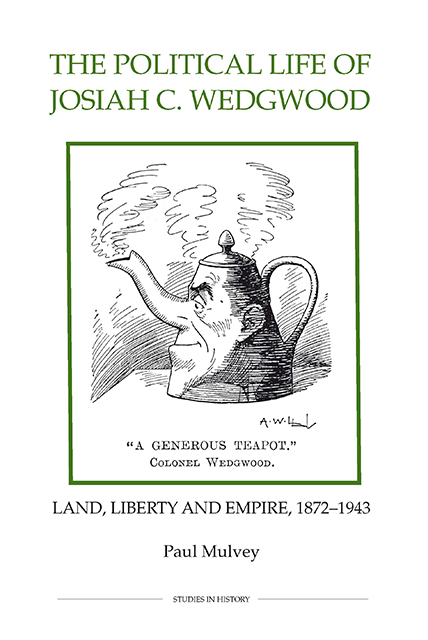5 - Liberalism and patriotism
Published online by Cambridge University Press: 02 March 2023
Summary
To go to war?
At 5.00 a.m. on 1 August 1914 Wedgwood set out with his children on a cycling holiday. Seeing soldiers on the roads in full kit he realised that war was imminent and immediately returned to London. Until then he had not believed that a major European war was possible, not least because the workers of Europe would not allow it. On 3 August Sir Edward Grey justified British involvement in the war to the House of Commons. Morrell and Wedgwood were the first back-benchers to speak in the ensuing debate. Morrell said that Britain was under no obligation to anyone to go to war, and that by fighting Germany she was only preserving Russian despotism. Wedgwood, describing Grey's words as ‘a wonderful Jingo speech’, apocalyptically warned, in terms reminiscent of Norman Angell's best selling anti-war book The great illusion, that a modern credit-based economy could not stand the stress of war. Within weeks, he predicted, there would be mass unemployment and inflation, followed by starvation, looting and revolution. It was a speech that might have been expected from a self-proclaimed fiery Radical, but it was to prove as poor an indicator of his own behaviour as it was as a prediction of the immediate consequences of the war.
Wedgwood had rarely spoken on foreign affairs before the war, although he had been a member of the Liberal Foreign Affairs Committee and fully subscribed to that group's isolationist stance and view that wars were caused by the machinations of secretive diplomatists and military elites. In the light of this, it was not surprising that many Radicals, and Socialist leaders such as Kier Hardy and MacDonald, spoke out against British involvement in the impending war on or shortly before 3 August 1914. Wedgwood's friend and fellow Radical, Charles Trevelyan, actually resigned from the government over the issue, while his colleague in the effort to redefine the British imperial mission, E. D. Morel, became the fiercest anti-war polemicist of all. For men like Morel, Trevelyan, Angell and MacDonald the advent of war came as proof of their warnings of the dangers of secret diplomacy.
- Type
- Chapter
- Information
- The Political Life of Josiah C. WedgwoodLand, Liberty and Empire, 1872-1943, pp. 55 - 67Publisher: Boydell & BrewerPrint publication year: 2010

